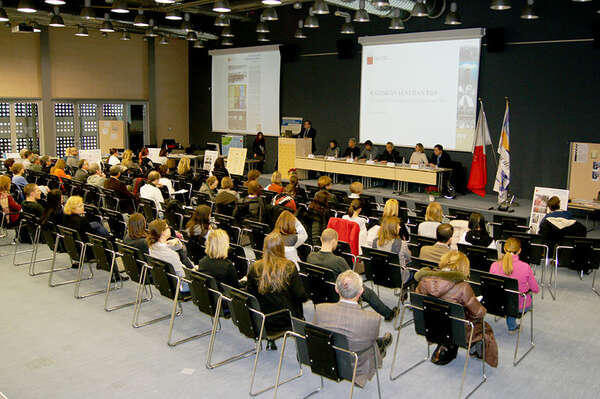
Slovenian round table on ethics in science raises questions on new EU General Data Protection Regulation
The Slovenian Social Science Data Archives (ADP) organised a round table conference entitled “Ethics in Science with a special focus on the new EU General Data Protection Regulation”.
The event was hosted by the Faculty of Social Sciences, University of Ljubljana, on 12 January 2017 and marked the occasion of 55 years of the Faculty’s academic existence and 50 years of social science research.
With 20 years of expertise in preserving and sharing research data, ADP champions data quality assurance, sustainable data use and open data initiatives. Recognising the gap between research interests and proposed changes in data protection legislation, ADP called for action, reviewing the current research practices, safeguarding standards and ethics policies.
The new regulation raises several questions that need to be acknowledged in the research community. These pertain to the need to strengthen the rights of research participants, enhance the responsibilities and duties of research institutions, as well as stress the role of consent forms.
Dr. Sonja Bezjak, ADP, facilitated a round table discussion with the following participants:
- Dr. Meta Dobnikar, Head of Science Division, Slovenian Ministry of Education, Science and Sport
- Peter Pavlin, Head of Penal Legislation and Human Rights Division, Slovenian Ministry of Justice
- Dr. Brina Malnar, Research Associate, Public Opinion and Mass Communication Research Centre, Faculty of Social Sciences, member of ethical committee
- Dr. Grega Repovš, Professor of Cognitive Neuroscience, Faculty of Arts, University of Ljubljana, member of ethical committee
- Dr. Franc Mali, Professor at Centre for Social Studies of Science, Faculty of Social Sciences, member of ethical committee
- Dr. Janez Štebe, Head of the Slovenian Social Science Data Archives.
Mr Pavlin was the negotiator for Slovenia on the EU General Data Protection Regulation (EUGDPR) with the EU Institutions. He explained the process of adopting the new regulation and addressed persisting issues and dilemmas.
Some of the main take-away messages of the round table were the following. The EUGDPR contains special provisions on processing of personal data for health purposes as well as for historical, statistical and scientific research purposes. Furthermore, it gives member states a mandate to grant research interests a special status and to allow them guarantees within the scope of data protection. However, following Article 6 “Lawfulness of processing”, member states may also introduce additional conditions to processing personal data, which in turn might pose challenges for scientific research1.
Mr. Pavlin drew attention to Article 25 “Data protection by design and by default”, where he argued that there was a lack of clarity on the stated provisions for scientific research. He also pointed out that Article 17 “Right to erasure (´right to be forgotten´)” might be in conflict with freedom of speech. Slovenia has recently had to deal with several affairs related to freedom of speech in the arts and politics (e.g. Udba.net affair). Mr. Pavlin stated that retaining information for scientific interest may therefore be problematic.
Research communities across the member states should monitor the implementation process as well as communicate their research interest in order to protect it. The regulation will enter into force in May 2018, giving the research community in all member states a fairly short time slot to voice their concerns and adapt to its requirements.
According to Mr. Pavlin, EU members are likely to face several challenges when adopting the new regulation. Although it contains many compromises and provides possible solutions, a number of ambiguities remain. For example, there are rising concerns in Slovenia that the new regulation could result in the lowering of human rights standards already in place.
The round table discussion resulted in the proposal to set up a working group, gathering researchers and other relevant stakeholders. The aim of the group would be to protect research interests by actively engaging in the implementation process at a national level as well as by raising awareness of the importance of scientific research to society.
A full report on the round table is available in Slovenian on the ADP blog website. For more information in English please contact: Arhiv.podatkov@fdv.uni-lj.si.
Spread the news on Twitter.
1 Regulation (EU) 2016/679 http://eur-lex.europa.eu/legal-content/EN/TXT/?uri=CELEX:32016R0679